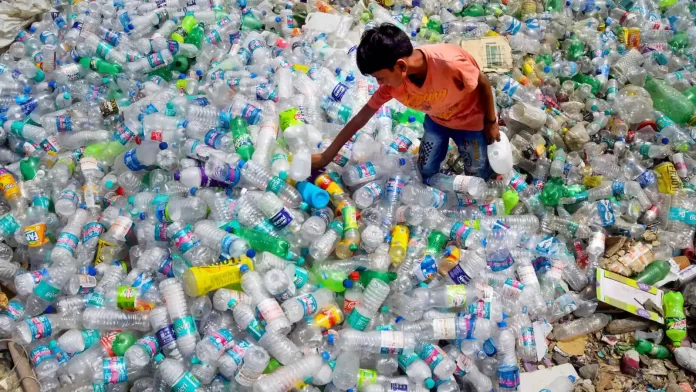As more individuals use less single-use plastics, they receive increased attention. In several regions of the world, there is a rising call for outlawing single-use plastic. You might be asking why thousands of individuals are making this demand. To fully comprehend the situation, let’s go in.
There are plastic bags throughout our surroundings. We use plastic shopping bags since they are practical when buying our goods. In reality, it has ingrained itself into who we are in today’s world. Nevertheless, these plastic bags’ convenience comes at a very high environmental cost and harms people’s health.
Not only do plastic bags contaminate our water, but also our land. Because they are made of non-renewable materials, plastic bags significantly contribute to climate change. Plastic bags are hazardous. Both humans and wildlife suffer health risks from plastic bags.
People have chosen to change after realizing the negative consequences of plastic bags on their health and the environment. If people are ready for the ban, it should be implemented to protect the environment and the natural world.
According to the U.N. Environment, only 9% of the nine billion tonnes of plastic produced worldwide has been recycled. Our seas, waterways, landfills, and ecosystems receive most of the plastic we produce. Plastics are non-biodegradable. Instead, they gradually degrade into tiny plastic fragments known as microplastics. The only solution to lessen the amount of plastic is to stop using it.
Concerns about rising temperatures or global warming have heightened people’s awareness of the need to protect and conserve the environment today. However, creating a sustainable future for generations just requires little steps in this direction.
We’ve compiled a list of the top 6 alternatives to plastic that, in regards to health, value, cost, and environmental impact, are superior to plastic.
- Bamboo:
Plastic may be replaced by this quickly expanding renewable resource, Bamboo, in products like dinnerware and drinking straws. It is foldable, strong, and lightweight.
It is a completely sustainable and biodegradable product.
- Copper bottles:
One of the numerous advantages of copper bottles is their anti-inflammatory and anti-carcinogenic properties. In addition, red blood cell formation and cell renewal are also aided by it. So using copper bottles might be a good start if you’re looking for alternatives and want to protect the environment.
- Natural cleaners:
One research found that slightly more than half of the home cleaners on grocery store shelves have compounds that are known to be detrimental to the lungs. These cleaners sometimes have a long list of hidden constituents. Additionally, these goods are packaged or kept in plastic bottles and containers.
But did you know that the majority of household messes can be cleaned up securely, affordably, and effectively with the help of a small number of everyday items, some of which are even food-grade like vinegar, lemon, salt, etc. In addition, you may refillable and everlasting bottles from natural cleaning goods Australia to keep your handmade natural cleaners.
- Stainless steel:
In recent years, there have been a growing number of durable and easy-to-clean stainless steel choices for reusable catering storage. This robust metal can be used to replace single-use cups, household storage, lunch boxes, and other items.
Stainless steel straws are an additional option due to their resilience, and because they are made of stainless steel, they won’t rust or give zero aftertaste.
- Glass:
Glass is harmless, cheap, and eternally recyclable despite not being compostable. Additionally, since many foods are packed in glass, repurposing glass jars as food storage is a free method to update your food packaging.
They may also be painted and used to make homemade presents, or they can be reused to keep leftovers and homemade beverages.
- Cloth bags:
Plastic bags can be replaced with natural fabric. When cleaned, sustainable clothes made of organic cotton, paper, or wool won’t get lint up with plastic fibers.
- Final words:
Remember that everything you purchase has an impact on the environment. Glass, metal, and other materials need energy to manufacture and transport, even if they are more durable than plastic.
You must utilize these swaps repeatedly for them to make sense. However, investing in well-made and long-lasting things can help you get enough usage out of anything you pick.










